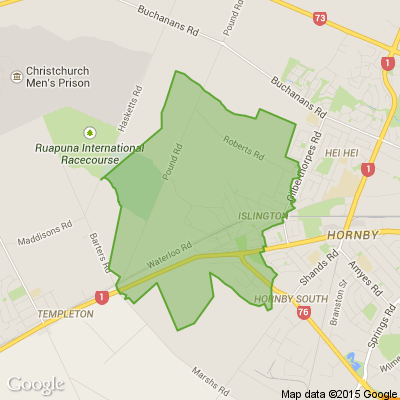23 positive reminders for 2023
I read this recently and think it's worth sharing:
1. Over the last 20 years, the proportion of people living in extreme poverty has almost been cut in half.
2. The average life expectancy around the world today is 72. In 1800, among all babies who were ever born, roughly half died during their childhood. Life expectancy was just 30 years and no country had a life expectancy above 40. Life expectancy at birth was only 45 years in 1870.
3. Flying has gotten 2,100 times safer over the past 70 years. 2016 was the second safest year in aviation history. The odds of being fatally injured in a plane crash are just 0.000025%.
4. The real price of plane travel in the U.S. has fallen by more than half since the late 1970s.
5. The share of homes that had electricity in 1870 was exactly zero. Today the proportion of people with electricity is 85%.
6. In 1905, a Vermont doctor and his chauffeur were the first to successfully drive a car across the country from San Francisco to New York. It took them 63 days. Today you can fly cross country in a matter of hours while using wireless Internet.
7. There was no entertainment available to the average family in 1870, except for a few travelling musicians or circus performers or in-home board or card games. Today our entertainment options are almost unlimited.
8. The average American now retires at age 62. One hundred years ago, the average American died at age 51.
9. The percentage of the population living past their 65th birthday was only 34% in 1870 but jumped to 56% by 1940 and 77% by 2000.
10. Up until the 1870s, people typically worked 11-12 hour days. By 1900, the typical worker put in 10 hours a day, 6 days a week. It wasn’t until 1940 that it came down to the standard 40-hour, 5-day workweek. And these weren’t office jobs sitting behind a desk. The conditions for most workers were terrible and hazardous to their health.
11. The proportion of people killed annually in wars is less than a quarter of what it was in the 1980s, one-seventh of what it was in the early 1970s, one-eighteenth of what it was in the early 1950s, and 0.5% of what it was during World War II.
12. The world’s nuclear stockpiles have been reduced by 85% since the Cold War.
13. The world has gotten richer (as measured by Gross World Product) in 51 of the last 55 years.
14. Since 1960, the fraction of a person’s life taken up by work has fallen by 25% through a combination of shorter workweeks, more paid time off, and longer retirements
15. Every single country in the world today has a lower infant or child mortality rate than it had in 1950.
16. Between 1961 and 2009 the amount of land used to grow food increased by 12%, but the amount of food that was grown increased by 300%.
17. Between 1950 and 2009, the rate of death in traffic accidents fell six-fold.
18. Roughly half of the adults in the world own a smartphone.
19. Just 7% of the world’s population lived in a free or relatively free society in 1850. Today that number is closer to two-thirds.
20. Early in the 19th century, 12% of the world could read and write. Today it’s 83%.
21. In 1820, more than 80% of the world was unschooled. It’s estimated that by the end of the century, this number will be close to zero.
22. In 1920, just 28% of American teenagers ages 14-17 were in high school. The latest stats show over 80% graduated high school, of whom 70% went on to college.
23. In 1940, less than 5% of Americans held a bachelor’s degree. By 2015, it was up to one-third.
Adapted from: A Wealth of Common Sense, Ben Carlson, 6 April 2023
Related Articles
Light up your life
The Karen Walker Paints collection from Resene will see you sprucing up your home in style with this simple but fun project using your favourite Karen Walker testpot colours. Find out how to create your own with these easy step by step instructions.

Is now the time to change "The Garden City" Title?
Something to natter about over tonight's events.
Since the 2010/2011 Earthquakes, Christchurch has struggled to replicate or make a come-back to regain the "Garden City" title.
There are a large number of contributing factors, land and properties being destroyed and rendered inhabitable = gardens lost for many years or altogether, during the Chaos that followed, residents, businesses and the council had far greater priorities to worry about.
Now the dust has mostly settled, it is becoming more and more obvious that "The Garden City" title can never be lived up to again.
My observations are decisions are being made that are making it impossible:
Huge chunks of land are now mown wastelands, for exercising and dog walking.
Other areas have been converted into water retention/nature and wildlife reserves, none of the plans I have seen or heard, indicate a move back to a Garden City image.
Add to this that high-density housing is reducing the land to grow a garden on and the latest charging for water usage has had a visible effect on how people keep the berm outside their houses. Lots of the properties that are still intact for gardening are now rental properties and it is not hard to see which of those properties are as you drive around, but lots would not win the Garden Award.
I am not in favour or against any of the factors mentioned, I heard chch referred to as "The Garden City" and thought if we had to come up with a new name, what would we want it to be, that reflects a new Image?
Cathedral City is out
Cycle City.....
Wetland wonderland ......
Dog-Friendly City.
I hope you receive all that you deserve in 2025
.
We're talking new year resolutions...
Tidying the house before going to bed each night, meditating upon waking or taking the stairs at work.
What’s something quick, or easy, that you started doing that made a major positive change in your life?







 Loading…
Loading…


















